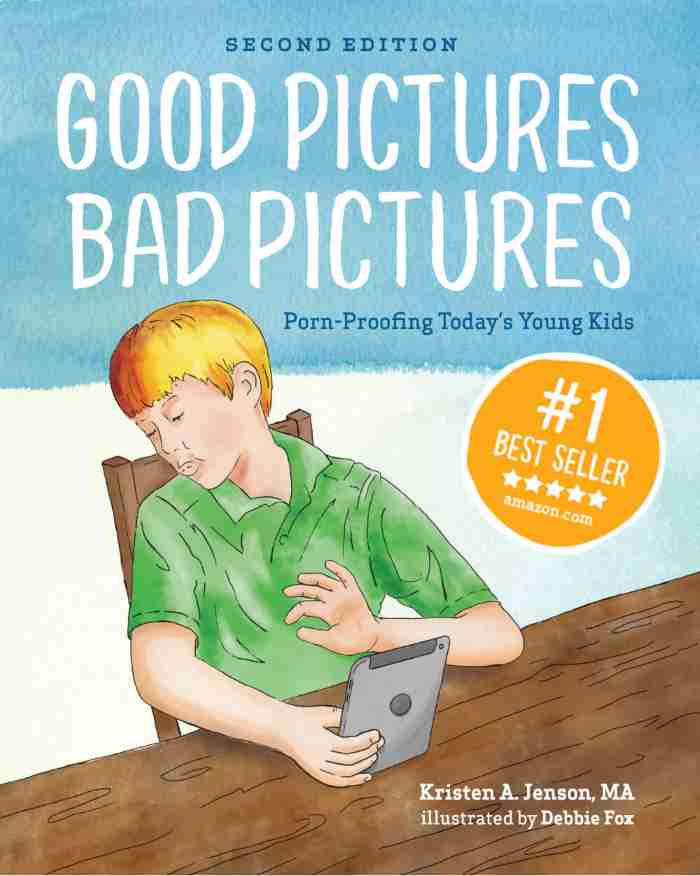
Internet Safety: Three Tips for Parents Before Giving Kids an iPad, Tablet or Smartphone

Are you planning to give your younger child an Internet-enabled device like an iPad, Kindle Fire, Google Nexus or any kind of smartphone for Christmas? It may be on your kid’s wish list, but before you wrap it up and put it under the tree, make sure you consider how you’ll keep them safe online with their new device. Here are three things to consider before Christmas morning:
The Gift of Access. Are you sure you want to give them an Internet-enabled device? Now hold on, I’m not suggesting that they don’t have access to the latest greatest technology. But you might consider giving the gift of access instead of the actual piece of technology. KJ Dell’Antonia, a parenting blogger for the New York Times, proposed a “family iPad.” That way, kids don’t create their own “individual online world” prematurely, before they’re ready to deal with Facebook, Instagram, Twitter and texting, as well as the issues of Internet safety from predators. A family device leaves parents with the “right” to set up passwords, parental controls and time limits.

Family Tech Etiquette. Whether you give your kids the device or just let them use it, it’s crucial to set up “Family Tech Etiquette” to preserve family relationships as well as keep kids safe online. Here's the message: In our family, we thoughtfully and intentionally use technology to improve our lives; we don’t allow technology to rule (or damage) our relationships.
Some questions to consider:

- Are devices allowed to go to bed with kids at night or do they get re-charged at the parents’ bedside?
- When friends who own Internet-enabled devices come over, where do those devices go?
- How much time each day should be given to interfacing with the device/Internet?
- What information should be shared online?
- Do we allow devices at the dinner table?
- If we’re in the middle of a conversation, do we allow that to be interrupted with a call from a friend? If so, in what circumstances?
[[CTA]]
Family Media Standards. This is where you talk about appropriate and inappropriate content. Why define your standards? Kids may initially be distressed or repulsed by pornography, but without specific reasons to avoid it, that initial distress can quickly be overcome by curiosity and peer pressure. If you give your kids clear reasons why they should avoid viewing pornography, you’re helping them develop their “thinking brain.” That’s the pre-frontal cortex that is still developing (and not fully developed until the early 20’s!). A child whose parents have clearly and specifically communicated how porn can be harmful has a stronger defense against the allure of sexual images. In the end, this is the best and probably only way to keep kids safe online. Here are a few ideas to get your started:
- “Our family does not watch or vote for media that objectifies women or men. People are more than their bodies and deserve to be treated with respect. Repeated viewing of media that exploits people for their bodies can lead us to see people as objects instead of human beings with feelings.”

- “Our family does not watch or vote for media that is sexually arousing. Sexual arousal needs to be controlled and used for developing a loving, committed relationship like marriage.”
- “Our family does not watch or vote for media that glorifies violence. Watching extreme and repeated violence can desensitize us to the pain people feel when they get hurt and decrease our ability to empathize with others.”
- “Our family talks about the media we see. We decode the underlying messages and decide if we want to accept them or not. We ask ourselves, Is the hero a good person who conquers evil in the end? What can we learn from the mistakes the hero and other characters make?”
Whatever gifts you decide to give your kids, giving them the gift of media standards and media savvy will go a long way in keeping them safe online. In the end, with the wide availability of Internet access, our kids are going to be the ones who make critical decisions about what they will and will not watch.That's why it's so important to help them install a filter in their own brain. With your direction and guidance, they will be equipped to make smart choices to protect their brains from Internet pornography.


Good Pictures Bad Pictures
"I really like the no-shame approach the author takes. It's so much more than just 'don't watch or look at porn.' It gave my children a real understanding about the brain and its natural response to pornography, how it can affect you if you look at it, and how to be prepared when you do come across it (since, let's face it... it's gonna happen at some point)." -Amazon Review by D.O.







